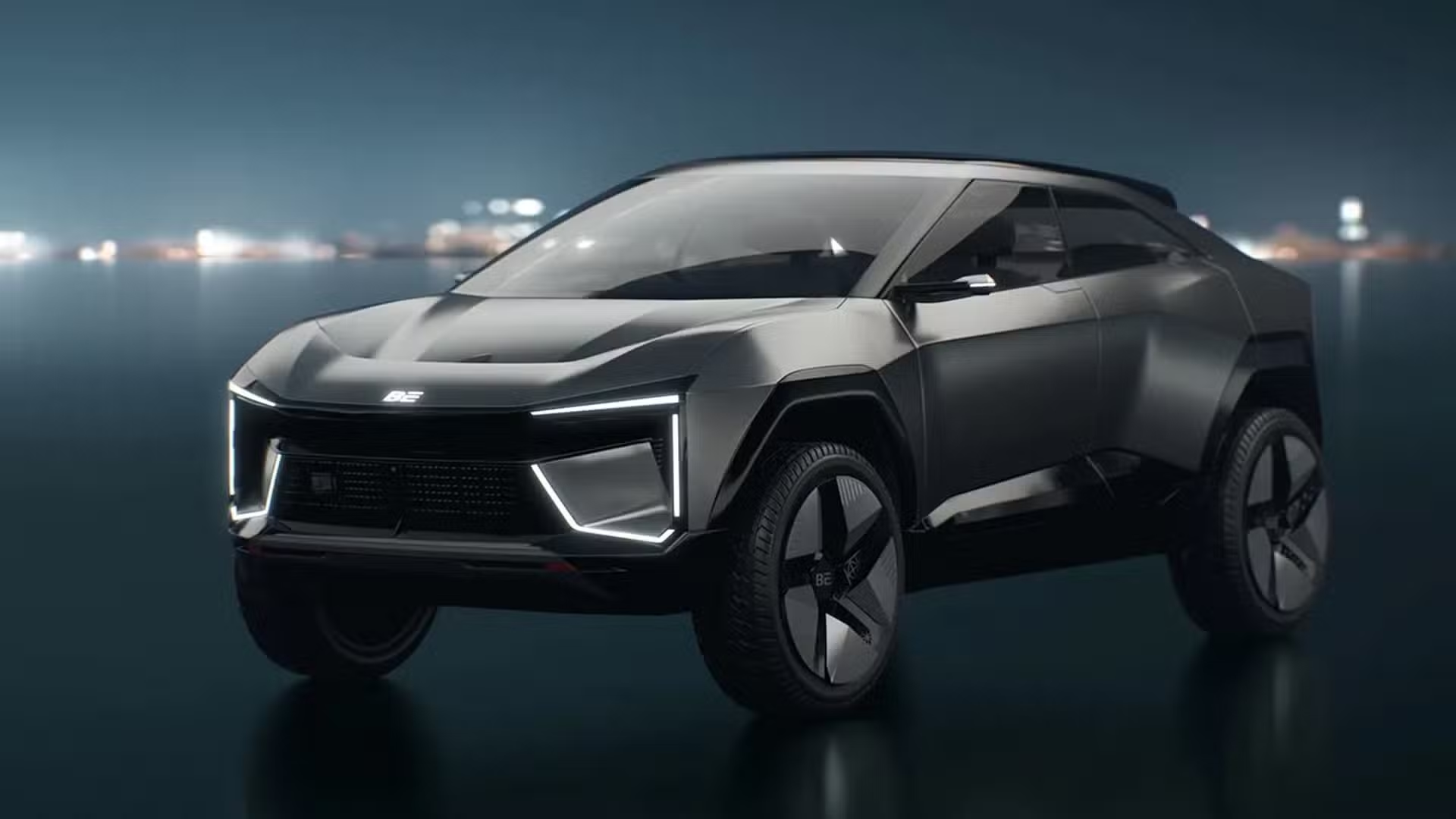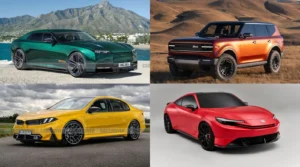Electric cars (EVs) are quickly becoming a significant part of the global automotive landscape, offering a cleaner, more sustainable alternative to traditional gasoline-powered vehicles. With advancements in technology, environmental concerns, and shifts in consumer preferences, electric vehicles have emerged as a viable solution to reduce carbon emissions, decrease dependence on fossil fuels, and promote energy efficiency. This article explores the rise of electric cars, their benefits, challenges, and their role in shaping the future of transportation.
What is an Electric Car?
An electric car, or electric vehicle (EV), is a vehicle powered entirely or partially by electricity. Unlike traditional vehicles that run on gasoline or diesel, electric cars use electric motors powered by batteries, which store energy that is used to drive the wheels. There are two primary types of electric cars:
- Battery Electric Vehicles (BEVs): These vehicles run solely on electricity and have a battery that must be recharged through an external power source. The battery supplies energy to the electric motor, which powers the vehicle.
- Plug-in Hybrid Electric Vehicles (PHEVs): These vehicles combine an internal combustion engine (ICE) with an electric motor. They can be charged through an external source and can operate on electric power for a certain range before switching to gasoline or diesel when the battery runs out.
The Rise of Electric Cars: A Growing Trend
Electric cars have been around for decades, but it is only in recent years that they have gained widespread popularity. The increase in their adoption is largely driven by several factors:
1. Environmental Concerns
The growing awareness of climate change and the harmful effects of carbon emissions has prompted governments, organizations, and consumers to seek greener alternatives. Traditional gasoline and diesel cars emit significant amounts of CO2, contributing to air pollution and global warming. Electric cars, on the other hand, produce zero tailpipe emissions, which significantly reduces their environmental impact. In countries like Norway and the Netherlands, electric cars now make up a large percentage of new car sales, with many governments offering incentives for EV purchases and charging infrastructure.
2. Technological Advancements
In recent years, there have been significant technological advancements in electric car design, particularly in terms of battery technology. Lithium-ion batteries, which are commonly used in electric vehicles, have become more efficient, affordable, and longer-lasting. The range of electric cars (how far they can travel on a single charge) has increased, with some models now capable of traveling over 300 miles on a single charge. Charging times have also decreased, and the network of charging stations has expanded, making it easier to own and operate an EV.
3. Cost Reduction
The cost of producing electric vehicles has decreased, making them more accessible to the average consumer. Battery prices, which are a significant factor in the overall cost of EVs, have fallen dramatically in recent years, leading to more affordable electric cars. As a result, automakers are able to offer EVs at competitive prices compared to traditional vehicles, and some manufacturers even offer budget-friendly models aimed at mass-market consumers.
4. Government Incentives
Governments around the world are encouraging the transition to electric vehicles by offering tax incentives, rebates, and other perks for EV buyers. These incentives can significantly reduce the upfront cost of purchasing an electric vehicle, making them more attractive to consumers. Many governments are also investing in charging infrastructure and establishing emission regulations that promote the shift towards electric vehicles.
The Benefits of Electric Cars
Electric cars offer several key advantages, both for the environment and for consumers. Here are some of the main benefits:
1. Environmental Impact
As mentioned, one of the most significant benefits of electric cars is their reduced environmental impact. Since they don’t rely on fossil fuels, they produce no tailpipe emissions, contributing to cleaner air and a reduction in greenhouse gases. This is especially important in urban areas where air pollution from vehicles is a major concern.
2. Lower Operating Costs
Electric cars tend to have lower operating costs compared to traditional vehicles. Charging an electric car is generally cheaper than filling up a gasoline tank, especially when using home charging setups. EVs also have fewer moving parts, meaning less wear and tear, fewer breakdowns, and lower maintenance costs. There’s no need for oil changes, and the brakes on electric cars tend to last longer due to regenerative braking, which captures energy and recharges the battery.
3. Energy Efficiency
Electric motors are much more energy-efficient than internal combustion engines (ICE). While a gasoline engine may only convert about 20-30% of the energy from fuel into actual movement, electric motors can convert 85-90% of the electrical energy from the battery into motion, making EVs significantly more energy-efficient.
4. Quiet and Smooth Ride
Electric cars offer a quiet, smooth, and comfortable driving experience. Without the rumble of an internal combustion engine, EVs are much quieter on the road. The driving experience is also often smoother due to the instant torque provided by electric motors, giving the vehicle immediate acceleration without the need for gear shifting.
The Challenges Facing Electric Cars
Despite their growing popularity, there are still challenges that electric cars face, limiting their widespread adoption:
1. Range Anxiety
Although EV range has improved, “range anxiety” remains a concern for some consumers. This refers to the fear of running out of battery charge while on the road. While the range of electric cars is often sufficient for daily use, long road trips or areas with sparse charging infrastructure may present challenges. However, advancements in battery technology and the expansion of the charging network are helping to address this issue.
2. Charging Infrastructure
Although the availability of charging stations is expanding, it is still not as widespread or convenient as gas stations, especially in rural areas or certain countries. Fast-charging stations are also limited, which can mean longer wait times for drivers in some regions. To fully transition to an electric vehicle future, a robust, widespread charging infrastructure is essential.
3. Initial Purchase Price
Although the cost of electric vehicles has been dropping, the initial purchase price of an EV can still be higher than that of a conventional car, particularly for premium models. While government incentives can help reduce this cost, EVs are often still more expensive upfront. However, the overall cost of ownership is usually lower due to reduced operating and maintenance costs.
4. Battery Life and Recycling
Batteries are the most expensive component of electric vehicles, and they degrade over time. While most EV batteries last several years, concerns about their eventual replacement and the environmental impact of battery disposal remain. However, there are ongoing efforts to improve battery recycling and make the process more sustainable.
The Future of Electric Cars
The future of electric vehicles looks promising. Automakers are increasingly committing to electrifying their fleets, with many major companies like General Motors, Ford, and Volkswagen announcing plans to phase out internal combustion engines in favor of electric models. In addition, companies like Tesla, Rivian, and Lucid Motors are leading the charge in innovation and production of cutting-edge electric vehicles.
Governments worldwide are also implementing policies to encourage EV adoption, including stricter emissions regulations, tax incentives, and investment in charging infrastructure. With continued advancements in battery technology, an expanding charging network, and growing consumer demand, the future of electric cars looks brighter than ever.
Conclusion
Electric cars are revolutionizing the transportation industry, offering a cleaner, more sustainable alternative to traditional gasoline-powered vehicles. With their environmental benefits, lower operating costs, and energy efficiency, EVs are poised to play a central role in the future of mobility. While challenges such as range anxiety and charging infrastructure still exist, the rapid pace of technological advancements and increasing global adoption suggest that electric vehicles will continue to grow in popularity, helping to create a greener and more sustainable world for future generations.
Best Offers Of The Month
Finding The Top Betting Sites
With the plethora of online bookmakers available today, selecting the right one can be a daunting task. The key to finding the best betting site lies not only in the odds they offer but also in factors like bonuses, user experience, and customer support. While everyone has unique preferences, there are certain features that distinguish top bookmakers from the rest.
If you’re looking to enhance your betting experience, you’ll want to evaluate several aspects, such as promotions, ease of use, and the variety of sports covered. Taking the time to research these elements will ensure you pick the bookmaker that best suits your needs.
Important Factors
Best Odds
One of the primary considerations is the odds. A great bookmaker consistently offers competitive odds across a wide range of markets. Even a small difference in odds can lead to significant gains in the long run.
Bonuses and Promotions
Welcome bonuses are often what attract users to a new betting site. These can include deposit matches, free bets, or risk-free wagers. Beyond the initial offer, look for sites that provide ongoing promotions, such as enhanced odds, loyalty rewards, or free bet tokens for long-term customers.
Range of Markets and Sports
A good betting site will offer coverage for a variety of sports and events, from major leagues to niche markets. If you’re interested in a specific sport or race, it’s essential to check the site’s range of betting options. Sites with extensive market coverage allow users to explore different types of bets, such as match winners, handicaps, or accumulators.
Mobile Betting and User Experience
In today’s fast-paced world, having a mobile-friendly platform is crucial. The top betting sites make it easy for users to place bets on the go, with apps or mobile-optimized websites. A well-designed interface can make all the difference, especially when it comes to live betting where speed is key.
Customer Service
Customer support is often an overlooked aspect, but it’s vital for a seamless betting experience. Whether you encounter issues with payments or need help understanding promotions, a responsive customer service team makes the process smoother. Look for sites that offer live chat, email support, and FAQs to resolve any problems quickly.
Deposit and Withdrawal Options
A reputable bookmaker will offer multiple deposit and withdrawal methods, ranging from traditional bank transfers to eWallets like PayPal or Skrill. It’s also important to consider processing times, especially for withdrawals, as quicker payouts can make a difference for frequent bettors.
What Makes a Betting Site Stand Out?
Special Features
Many bookmakers now offer additional features like live streaming of sports events, detailed statistics, and expert tips. These extras can help users make informed decisions and enhance the overall betting experience.
Consistent Promotions
While the initial welcome bonus is tempting, ongoing promotions are equally important. Top sites offer year-round promotions tailored to different sports and events, giving users the chance to maximize their winnings with free bets or enhanced odds.
Speedy Payouts
Fast payouts are essential, especially for those who bet regularly. Leading bookmakers typically offer quick withdrawal options, ensuring that winnings are processed shortly after an event concludes.
How to Choose the Right Betting Site
User Interface and Navigation
An intuitive and clean interface is crucial when placing bets. Whether you’re a seasoned bettor or a newcomer, you should be able to navigate the site quickly, find the markets you’re interested in, and place your bets without hassle.
Betting Markets and Variety
Some sites specialize in certain sports, offering an extensive range of markets for events like horse racing or football. If you’re looking for variety, choose a site that offers a broad spectrum of markets, from mainstream sports to lesser-known events.
Competitive Odds
To maximize your profits, look for bookmakers that consistently offer competitive odds. While no site will have the best odds for every single event, those with a track record of providing good value across various markets are worth considering.
Deposit and Withdrawal Flexibility
A betting site should offer flexibility with payment methods. Whether you prefer credit cards, bank transfers, or digital wallets, the right bookmaker will accommodate your preferred method and ensure smooth, quick transactions.
Quality of Support
If something goes wrong, reliable customer support is crucial. Sites that offer 24/7 assistance through live chat, phone, or email provide peace of mind and ensure that any issues are resolved efficiently.
Final Thoughts
Finding the best betting site requires careful consideration of various factors, from the quality of odds to customer service. By taking the time to compare top bookmakers and assessing their features, you can select the one that offers the best experience tailored to your betting preferences. Whether you prioritize mobile betting, bonuses, or a wide range of markets, the ideal bookmaker is out there, waiting to enhance your sports betting experience.






